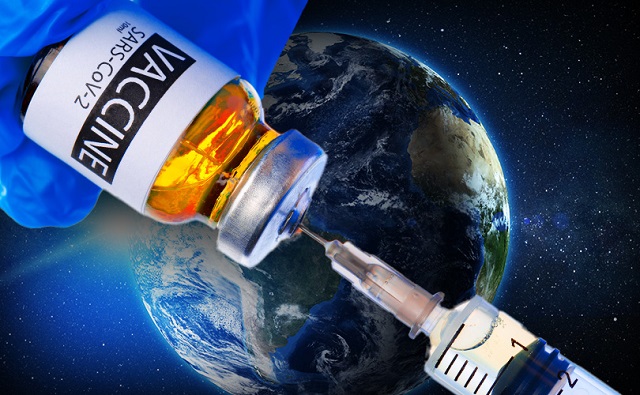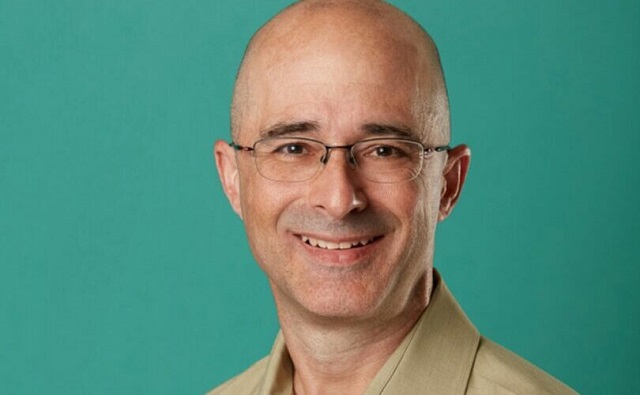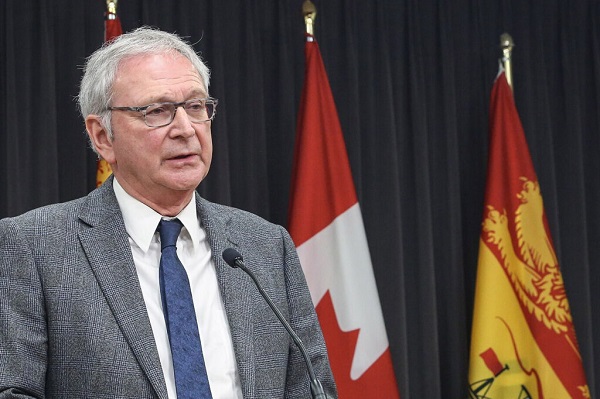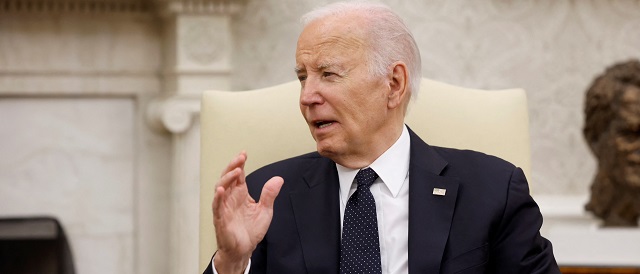Uncategorized
Supreme Court nominee Kavanaugh clears crucial Senate hurdle

WASHINGTON — A deeply divided Senate pushed Brett Kavanaugh’s Supreme Court nomination past a key procedural hurdle Friday, setting up a likely final showdown on Saturday in a spellbinding battle that’s seen claims of long-ago sexual assault by the nominee threaten President Donald Trump’s effort to tip the court rightward for decades.
The Senate voted 51-49 to limit debate, defeating Democratic efforts to scuttle the nomination with endless delays and moving the chamber toward a climax of a fight that has captivated the country since summer. With Republicans controlling the chamber 51-49, one Republican voted to stop the nomination, one Democrat to send it further.
Of the four lawmakers who had not revealed their decisions until Friday — all moderates — Republican Sens. Susan Collins of Maine and Jeff Flake of Arizona voted yes, as did Democrat Joe Manchin of West Virginia. Republican Lisa Murkowski of Alaska voted not to move the nomination ahead.
While the vote was a victory for the GOP, lawmakers can vote differently on the climactic confirmation roll call, which seems likely Saturday afternoon. Collins told reporters she would announce later Friday how she would go.
That left unclear whether Friday’s tally
Confirmation would be a crowning achievement for Trump, his conservative base and Senate Majority Leader Mitch McConnell, R-Ky.
Murkowski sat solemnly during the roll call and whispered “No” when it was her turn to vote. As the tally neared an end, she spoke with Collins, a friend. The pair was surrounded by colleagues from both parties after the vote.
All four lawmakers who’d been undeclared said little or nothing to reporters as they left the chamber.
Trump weighed in shortly after the roll call was announced, tweeting, “Very proud of the U.S. Senate for voting ‘YES’ to advance the nomination of Judge Brett Kavanaugh!”
Friday’s procedural vote occurred a day after the Senate received a roughly 50-page FBI report on the sexual assault allegations, which Trump ordered only after wavering GOP senators forced him to do so.
Republicans said the secret document — which described interviews agents conducted with 10 witnesses — failed to find anyone who could corroborate allegations by his two chief accusers, Christine Blasey Ford and Deborah Ramirez. Democrats belittled the bureau’s findings, saying agents constrained by the White House hadn’t reached out to numerous other people with potentially important information.
The vote occurred against a backdrop of
On the Senate floor, lawmakers’ comments underscored the lingering bitterness.
“What left wing groups and their Democratic allies have done to Judge Kavanaugh is nothing short of monstrous,” Senate Judiciary Committee Chairman Chuck Grassley, R-Iowa, said on the chamber’s floor before the vote. He accused Democrats of using destructive, unwarranted personal attacks on the nominee and even encouraging the protesters, saying, “They have encouraged mob rule.”
Dianne Feinstein of California, that committee’s top Democrat, said Kavanaugh’s testimony at last week’s dramatic Judiciary panel hearing should “worry us all,” citing “a hostility and belligerence that is unbecoming” of a Supreme Court nominee.
Senate Minority Leader Chuck Schumer, D-N.Y., called the fight “a sorry epilogue to the brazen theft of Justice Scalia’s seat.” That reflected Democrats’ lasting umbrage over Republicans’ 2016 refusal to even consider Merrick Garland, President Barack Obama’s nominee to replace the late Antonin Scalia.
When Trump nominated Kavanaugh in July, Democrats leapt to oppose him, saying that past statements and opinions showed he’d be a threat to the Roe v. Wade case that assured the right to abortion. They said he also seemed ready to knock down President Barack Obama’s health care law and to rule for Trump if federal authorities probing his 2016 campaign’s connections to Russia initiate legal action.
But that evolved into a late-summer spectacle after Ford accused Kavanaugh of trying to rape her at an alcohol-infused high school gathering in 1982, when both were teenagers. Two other women also emerged and accused him of other incidents of sexual misconduct. Kavanaugh has denied all the charges.
Under pressure from wavering Republicans, GOP leaders agreed to an extraordinary Senate Judiciary Committee hearing last week that mesmerized the nation as Ford nervously recounted her story and said she was “100
A fuming Kavanaugh strode into the same packed hearing room that afternoon and said he, too, was “100
___
AP reporters Mary Clare Jalonick, Matthew Daly, Padmananda Rama, Kenneth Thomas and Catherine Lucey contributed.
Lisa Mascaro And Alan Fram, The Associated Press
Uncategorized
RCMP recruitment failure has Alberta advocacy group calling for Provincial Police Service

News release from Free Alberta Strategy (A Strong And Sovereign Alberta Within Canada)
“Make no mistake, we are paying for these services that we aren’t receiving. Alberta’s taxpayers are paying tens of millions of dollars for nearly 400 vacant RCMP officer positions – for boots that are not on the ground.”
A recent report from the Royal Canadian Mounted Police (RCMP)’s independent Management Advisory Board had findings that are nothing short of alarming:
“Federal policing has now arrived at a critical juncture of its sustainability, which present risks for the national security and safety of Canada, its people, and its interests,” says the report.
After over a year of diligent study, the Board has been tirelessly firing off flares, signalling to all who will listen: the very foundation of our national public safety apparatus may be at risk of faltering.
This is doubly problematic because, as you well know, the RCMP is also responsible for boots-on-the-ground policing in large parts of the country, including many rural and remote areas – including in Alberta.
Rural crime has been a longstanding issue in Alberta, and social disorder continues to make headlines nightly.
Alberta Minister of Public Safety, Mike Ellis, took to social media platform X (formerly known as Twitter) to express his opinion:
“The independent report finds the RCMP has struggled in recent years to recruit and retain regular members, a problem that’s particularly acute in federal policing. This is not about the hard-working men and women on the frontline: they are doing everything they can. The reality is the RCMP do not have enough officers to police communities in Canada effectively.”
Ellis has been ahead of this story for months now.
In March, Ellis stated that:
“… on average, Alberta has an RCMP officer vacancy rate of 20 per cent. This means that Alberta is only being served by 1,522 of the 1,911 RCMP officers that the federal government has authorized for Alberta.”
“Make no mistake, we are paying for these services that we aren’t receiving. Alberta’s taxpayers are paying tens of millions of dollars for nearly 400 vacant RCMP officer positions – for boots that are not on the ground.”
The consequences of this capacity crisis are far-reaching.
Not only does it jeopardize the safety of Albertans, but it also undermines the credibility of Canada’s federal police force on the international stage.
With limited resources and personnel, the RCMP’s ability to address pressing national and global security concerns is severely compromised.
The Management Advisory Board, created in 2019 by the federal government to provide external advice to the RCMP commissioner, set up a task force in the fall of 2022 to study the federal policing program.
Overall, the report says budget and personnel shortfalls have left the RCMP “operationally limited,” restricting the number of cases it can take on annually.
Here are some more highlights from the report:
“Canada and its people have already begun to see the repercussions of the federal policing program being stretched thin.”
“Federal policing’s overall eroding capacity may have implications for the credibility of Canada’s federal police force and its investigations on the international stage.”
“Ultimately, this may influence Canada’s overall approach and standing in international politics, including its ability to advance global priorities.”
Clearly, we cannot afford to wait any longer.
Municipalities can ease the burden on our national security services by establishing municipal policing.
Several cities in Alberta already have their own police authorities, and the provincial government is providing funding for others interested in exploring this option.
Grande Prairie is already in the process of establishing their own municipal police service.
No word on how many other municipalities have taken the government up on their offer.
Unfortunately, President of Alberta Municipalities Tyler Gandam (also Mayor of Wetaskiwin) is featured prominently on the National Police Federation’s “Keep Alberta RCMP” website.
Interestingly, the Keep Alberta RCMP website doesn’t mention the fact that the advisory board even exists.
It doesn’t mention the report.
The notion that our federal policing infrastructure teeters on the brink of instability while Gandam appears to be asleep at the wheel, is deeply disconcerting.
The safety and security of Albertans must remain our top priority.
We cannot afford to wait any longer.
The time has come for the province to take swift and decisive measures to bolster policing capabilities in Alberta.
It’s time for Alberta to seriously consider the establishment of an Alberta Provincial Police Service.
It has been one of the core tenets of the Free Alberta Strategy.
If you agree, please reach out to your municipality and ask them to take steps to protect your community.
Together, we can keep Alberta safe.
Regards,
The Free Alberta Strategy Team
P.S. We’re hoping you’ll consider contributing to our cause. Your generous donation helps us make a positive impact in our community. No need to worry about any hold-ups or threats here. We’re just passionate about making a difference, and your support goes a long way in helping us achieve our goals.
Uncategorized
Making Alberta a geothermal energy leader

Eavor announces it’s the #1 geothermal energy startup company in the world – January 2024
Alberta is creating Canada’s first geothermal test site to advance drilling innovation, reduce emissions and create jobs.
Geothermal energy uses naturally occurring heat within the earth to heat water and buildings and generate power, with few emissions or environmental impacts. Alberta has vast pockets of heat below ground, making the province Canada’s geothermal leader, but testing and developing new technologies can be a barrier for many companies. Unlike the United States, Japan and other countries, Canada does not currently have an open-access test site to help spur innovation.
Alberta is taking the first steps to create a new Alberta Drilling Accelerator. This groundbreaking facility would be the first of its kind in Canada, establishing Alberta as a global hub for geothermal technology. This will drive new innovations in geothermal and other clean energy projects that can reduce emissions and power communities around the world.
To kick-start the project, the Alberta government is investing $750,000 to conduct a feasibility study led by Calgary-based Eavor Technologies and other stakeholders. The study is the first step in assessing the proposed facility. It will include identifying a site, business planning, research on the governance model, an economic impact analysis and stakeholder engagement that will lay the groundwork for the initial planning stages of the project.
“Alberta has been a global energy leader for more than a century, renowned for our skilled workforce, innovation and one of the largest oil and gas reserves on the planet. The proposed Alberta Drilling Accelerator presents enormous potential to help our province lead the next wave of energy projects here at home and around the world that reduce emissions, create jobs and enhance energy security.”
The Alberta Drilling Accelerator would help companies test out and develop new geothermal drilling techniques or technologies to reduce emissions and drive growth across the clean energy sector. It would be an open-access, technology-agnostic drilling test facility capable of drilling in challenging environments, including deep depths, high temperatures and different rock types.
The accelerator also would help speed up the development of carbon capture, utilization and storage; helium; critical minerals; and other clean technologies and commodities that rely on Alberta’s drilling sector. All of this helps attract investment and bring new technologies to scale in Canada.
“With cumulative geothermal investment poised to reach $1 trillion by 2050, a geothermal arms race is very much underway to commercialize novel drilling techniques that accelerate geothermal development – exhibited by testing facilities in the United States, China and Iceland. As Canada’s first geothermal test bed, the Alberta Drilling Accelerator will help bring geothermal technologies to scale, supporting companies like Eavor. We commend the Government of Alberta for this bold initiative.”
“We are proud to witness Eavor, a CDL-Rockies alumni company, create new opportunities for innovators like themselves to advance the adoption of energy transition technologies like geothermal. The Alberta Drilling Accelerator will further solidify Alberta’s position as a leader in the global sustainable energy landscape.”
If the feasibility study shows the facility is economically and environmentally viable, and if the project is approved by the Alberta government, the facility will start taking shape at the selected site and drilling could start as early as 2025.
“Canada is home to the most advanced drilling technology in the world. Not only do our members support the responsible development of oil and gas, but we are integral in the extraction of new energy resources like geothermal and critical minerals. Our workers are at the epicentre of Canada’s energy transformation. Our people, technology and processes are leading the way towards a more diverse energy future. The Alberta Drilling Accelerator is a government-enabled policy approach to expand Alberta’s drilling capacity and reach its full potential as the world’s most diverse and technologically advanced producer and exporter of sustainable energy and critical minerals.”
“The Alberta Drilling Accelerator is a testament to Alberta’s innovative and entrepreneurial spirit. Leveraging our oil and gas sector expertise, Alberta is poised to become the global leader in developing new geothermal technologies that will play an integral role in reducing emissions while supporting job creation.”
Quick facts
- The Canadian Association of Energy Contractors estimates that one active drilling rig, whether drilling for natural gas or geothermal, creates approximately 220 direct and indirect jobs and
$1 million in tax revenue. - In 2019, Eavor received $2 million in provincial funding through Emissions Reduction Alberta and Alberta Innovates for the world’s first closed-loop geothermal system.
Related information
-
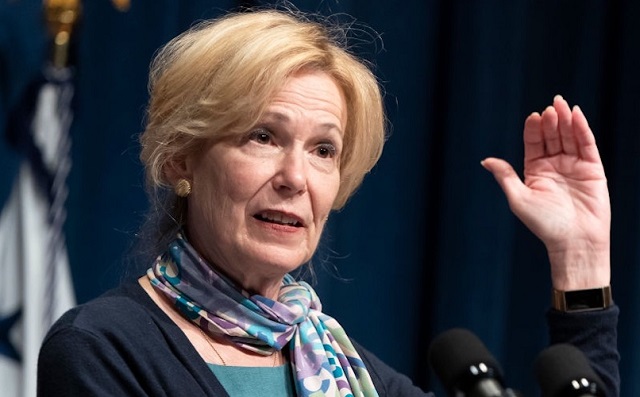
 COVID-192 days ago
COVID-192 days agoFormer COVID coordinator Deborah Birx now admits jabs could have injured ‘thousands’
-

 Opinion2 days ago
Opinion2 days agoCanada’s fertility, marriage rates plummet to record lows: report
-

 Uncategorized1 day ago
Uncategorized1 day agoRCMP recruitment failure has Alberta advocacy group calling for Provincial Police Service
-

 Health1 day ago
Health1 day agoPrivate Footage Reveals Leading Medical Org’s Efforts To ‘Normalize’ Gender Ideology
-

 Alberta1 day ago
Alberta1 day agoRed Deer Hospital Lottery – Second Chance Early Bird Prize!!!
-

 armed forces1 day ago
armed forces1 day agoTrudeau government has spent $10 million promoting DEI in the military as recruitment flounders
-
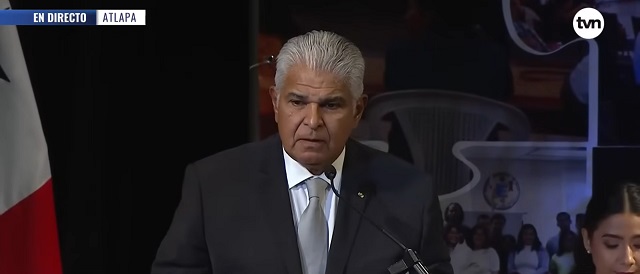
 illegal immigration2 days ago
illegal immigration2 days agoPanama’s Incoming President Wants To Shut Down His Country’s Most Treacherous Route For Migrants — But Will It Work?
-

 COVID-1924 hours ago
COVID-1924 hours agoMore victories for freedom as ArriveCAN charges dropped and fines reduced


